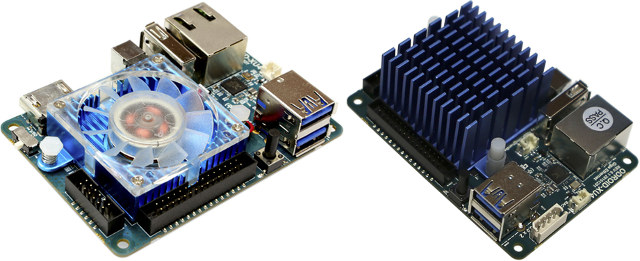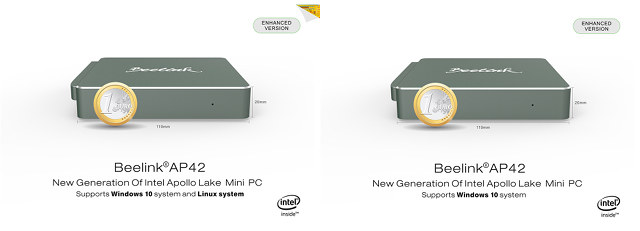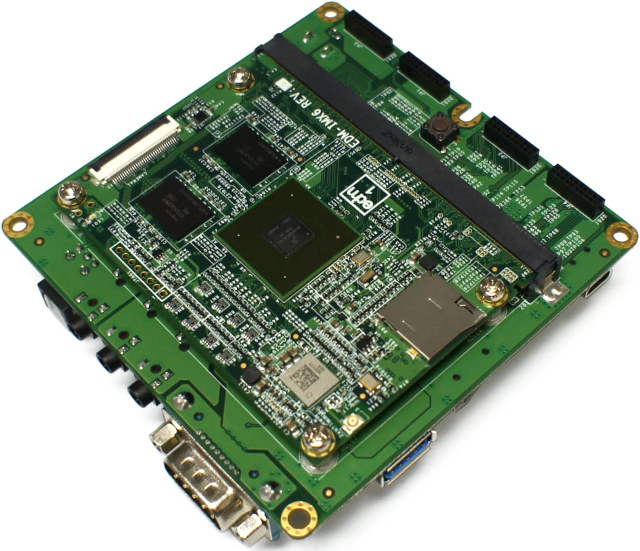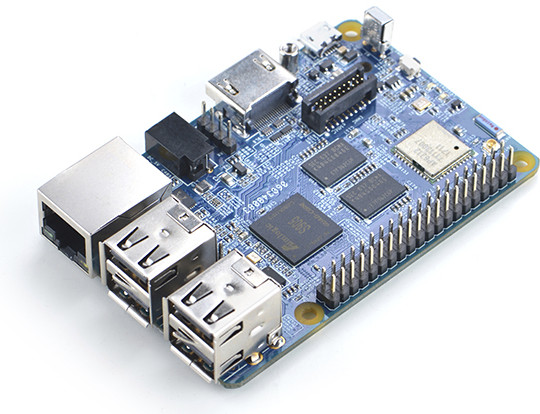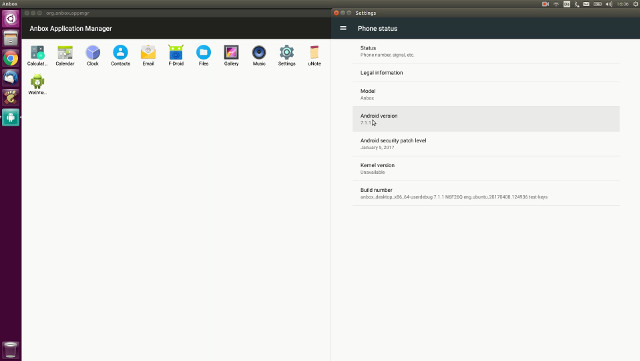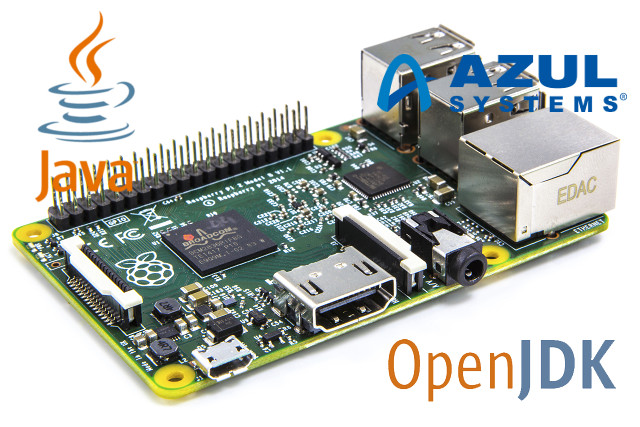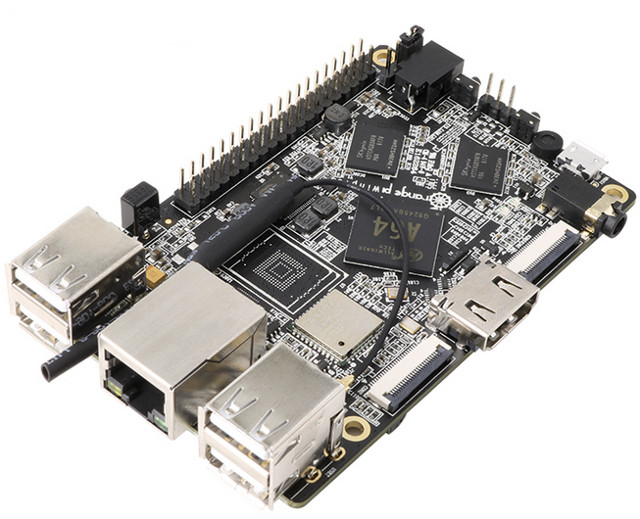[Update May 2018: You may be interested in ODROID-XU4Q review with Ubuntu 18.04] We had already seen ODROID-XU4 development board price drop to $59 earlier this year, but a frequent complain about the board remained: it requires a fan to operate at full speed, and makes noise while the fan turns. To address this issue, the company has now launched ODROID-XU4Q board with exactly the same specifications with Samsung Exynos 5422 octa-core processor, 2GB RAM, eMMC module support, Gigabit Ethernet, USB 3.0, HDMI 1.4 etc…, except the fan is replaced by a large heatsink. The company has also thoroughly tested both versions in different configurations such as setting the maximum frequency to 1.8 or 2.0 GHz, and found ODROID-XU4Q to be slightly slower under high load due to CPU throttling, as the large heatsink does not cool quite as well as the smaller heatsink in combination with a fan. However […]
Beelink AP42 Apollo Lake mini PC Linux Review with Ubuntu, KDE Neon, Elementary OS….
Beelink’s latest Intel mini PC offerings includes the AP34 and AP42 which are their first models using Intel Apollo Lake processors. The former uses an Intel Apollo Lake Celeron N3450 processor (burst frequency 2.2GHz, Intel HD Graphics 500 with Graphics Burst Frequency 700MHz and 12 Execution Units) while the latter uses the slightly more powerful Pentium N4200 (burst frequency 2.5GHz, Intel HD Graphics 505 with Graphics Burst Frequency 750MHz and 18 Execution Units). Both support Windows 10 (Home) and Beelink’s marketing claim they “support Linux system”. GearBest has given me the chance to review running Linux on the AP42 model so here are my findings. Normally I first make a disk image before booting Windows or installing Linux. However initial attempts at booting a Live USB with a variety of Linux systems failed so both the reseller and manufacturer were contacted for comment. Interestingly there was no immediate reply but early […]
Wandboard QuadPLUS Development Board Gets i.MX 6QuadPlus Processor, 802.11ac WiFi and Bluetooth 4.1
The first Wandboard development boards launched in 2012 nearly 5 years ago based on Freescale i.MX6 Solo and Dual processor, with Wandboard Quad launched a few months later. The boards were fairly popular at the time due to their better specifications, and especially Freescale’s much better documentation and software compared to the competition such as Broadcom (Raspberry Pi) and Allwinner (Cubieboard). Since the boards are based on TechNexion EDM system-on-modules they could also be used by companies working on their own products based on the system-on-module. It’s also a good platform if you want to test various version of Android, because the company released Jelly Bean, Kitkat, Lollipop, and Marshmallow images for the boards, and I’m expecting a Lollipop version soon. However, albeit the company worked on other NXP boards such as PICO-IM6UL Android Things, there had not been any hardware upgrade for Wandboard for nearly 4 years, but last […]
$40 NanoPi K2 Board Powered by Amlogic S905 Processor Competes with ODROID-C2, Raspberry Pi 3
Hardkernel ODROID-C2 board is getting some direct competition with FriendlyELEC’s NanoPi K2 development board powered with Amlogic S905 processor with 2GB RAM, a very similar form factor, and many of the same features, which together with Khadas Vim (Pro) brings the number of low cost Amlogic based development boards to three. NanoPi K2 board specifications with differences compared to ODROID-C2 highlighted in bold or stricken-through: SoC – Amlogic S905 quad core cortex-A53 processor @ 1.5 GHz with penta core Mali-450MP GPU System Memory – 2GB DDR3 Storage – eMMC module socket, micro SD slot Video Output – HDMI 2.0 up to 4K @ 60 Hz Connectivity – Gigabit Ethernet (Realtek RTL8211F), 802.11 b/g/n WiFi + Bluetooth 4.0 (AP6212 module) with chip antenna + IPX connector USB – 4x USB 2.0 host ports (GL825G USB hub) + micro USB OTG port for power and adata Expansion Header 40-pin header with GPIO, […]
Anbox Allows You to Run Android Apps Natively in Ubuntu Linux
It’s been possible to run Android app in computers for a while with solutions such as Bluestacks or ShashLik, as well as running Android-x86 ISO in a virtual machine. But all those solutions rely on emulation, may not have the best performance, and at the time I tried them did not really work well, or were inconvenient to use. Anbox is different as instead of running its own Linux kernel for Android, it leverages the Linux kernel in Ubuntu for better integration and performance, and use an LXC container to run Android. Anbox has been tested with Ubuntu 16.04, but should also work with other recent Ubuntu distributions. Installing Anbox (Alpha) is easy, and can be done with a single command line:
|
1 |
sudo snap install --classic anbox-installer && anbox-installer |
The command will modify your system with the following: Add the anbox-support ppa ppa:morphis/anbox-support to the host system Install the anbox-modules-dkms deb package from the ppa which will […]
Azul Systems’ Zulu Embedded is a Build of OpenJDK for ARM, MIPS, PowerPC, and x86 Compliant with Java SE standard
Yesterday as I wrote about the Embedded Systems Conference 2017 schedule I came across a potentially interesting talk entitled “Building A Brain With Raspberry Pi and Zulu Embedded JVM” by Azul Systems that will explain how to build a brain emulator using a cluster of Raspberry Pi boards. I wanted to find more about it, but I have not been able to find any details about the project/demo at this stage. However, I could still learn a bit more about Zulu Embedded, which is said to be an open source Java Virtual Machine based on OpenJDK, compliant with Java SE standard, working on 32-bit & 64-bit ARM & x86, MIPS, and PowerPC, as well as multiple operating systems. Some of the key features of Zulu Embedded include: Java Support – Java 6, 7, 8, and 9 when available Java Configurations – Headless, headful, or compact Java Compact Profiles Hardware – […]
Canonical Refocuses Ubuntu Development Efforts on Cloud and IoT, Drops Convergence and Mobile
Mark Shuttleworth has published a new blog post in Ubuntu Insights, and this is not all good news, as the title “Growing Ubuntu for Cloud and IoT, rather than Phone and convergence” implies. Canonical has decided to drop Unity8, and replace it with Gnome in Ubuntu 18.04, and by extension stop any investment in Ubuntu phone and convergence. The main reasons given for the drop were that few commercial partners were interested in the project, preferring to stick with the most popular mobile operating systems like Android, and the community did not see the work as innovation, but instead fragmentation, probably referring to the Mir vs Wayland saga. On the better news, Canonical is still committed to work on Ubuntu desktop, and will focus on the Cloud and IoT applications such as automotive, robotics, networking, and machine learning, for which the company has gone well so far with multiple commercial […]
Shenzhen Xunlong Releases Two Orange Pi Boards with 64-Bit ARM Processor, 2GB RAM
Shenzhen Xunlong has already been selling 64-bit ARM development board with their Orange Pi PC 2 & Orange Pi Zero Plus 2 H5 boards based on Allwinner H5, as well as Orange Pi Win board powered by Allwinner A64 processor. However, so far none of them are equipped with much memory, with the only options being 512MB or 1GB RAM. The company has recently launched two new boards with 2GB RAM, namely Orange Pi Win Plus featuring Allwinner A64 SoC, and Orange Pi Prime equipped with Allwinner H5 SoC. Orange Pi Win Plus That board is just an update to Orange Pi Win board with the only difference I could find being the 2GB RAM: SoC – Allwinner A64 quad core ARM Cortex A53 processor @ 1.2 GHz with Mali-400MP2 GPU System Memory – 2GB DDR3 Storage – 2MB SPI flash, micro SD slot up to 64GB, footprint for optional […]


